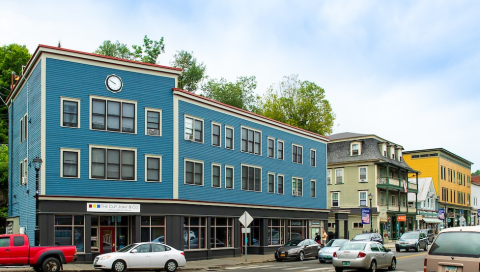
Vermont communities now have more ways to promote inclusive, smart growth. Last week, the Vermont Department of Housing and Community Development launched the Community Partnership for Neighborhood Development grant program and is accepting applications. In addition, these state experts are also providing critical materials to help communities implementing the provisions of Vermont’s new Housing Opportunities for Everyone (HOME) Act that took effect this month. They are collecting input from communities to help build a "frequently-asked questions" section that will be updated regularly. The Department of Housing and Community Development is also conducting an evaluation and reimagining of Vermont’s Designation Programs known as “Designation 2050”. Vermont’s designation programs offer many community benefits, including grants for flood-resilient infrastructure.
“We are thrilled to be expanding our approaches for supporting communities to become more vibrant and resilient,” remarked Amy Tomasso, Planning Coordinator at the Department of Housing and Community Development. “The HOME Act, the Community Partnerships for Neighborhood Development program and Designation 2050 are all working to increase opportunities for Vermont’s municipalities to expand housing options and evolve in sustainable, smart ways.”
The HOME Act is an important step towards mitigating the housing crisis because every Vermont community can help by removing unduly restrictive zoning. Restrictive zoning has wide-reaching impacts, ranging from housing supply shortages and accelerating home prices to exacerbating climate change and residential segregation, according to years of national and state research, recently synthesized by HUD.
The HOME Act amends Vermont's Planning & Development statute, Act 250, and other laws to enable new opportunities for housing development within state, regional, and local planning and development regulations. The many provisions of the HOME Act include requiring municipalities to allow duplexes everywhere that single-unit homes are allowed year-round, effectively eliminating "single-family zoning" statewide. This supports Vermont’s environmental goals by allowing more housing in existing residential areas.
In addition to impacting land use regulation and municipal zoning, the HOME Act hits other important housing issues. Examples include summer studies looking at coordination between state and local permitting processes, supporting Vermont’s manufactured home communities, rural economic recovery, expanded programming targets the middle-income rental development, and expansion of the Vermont Housing Improvement Program.

